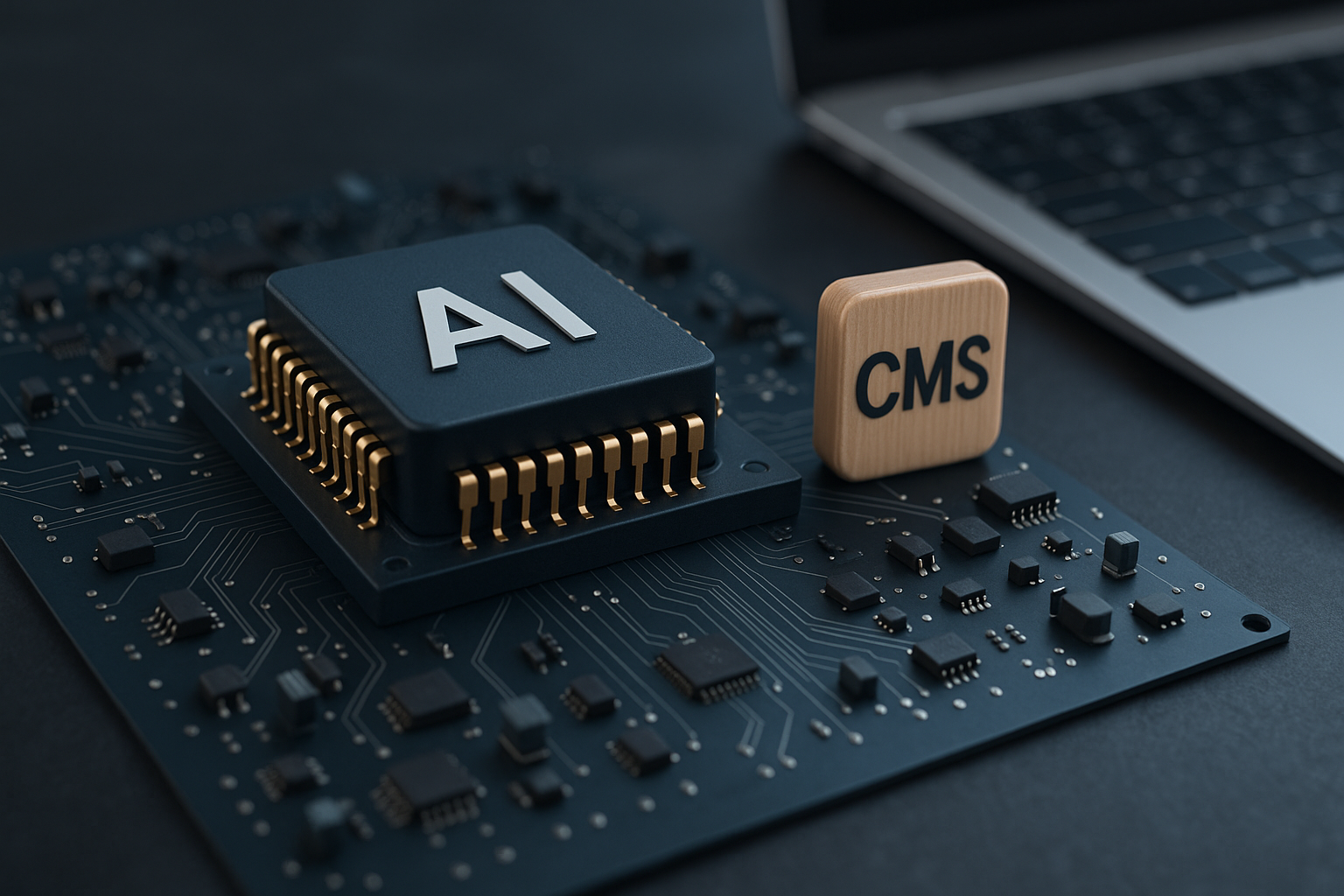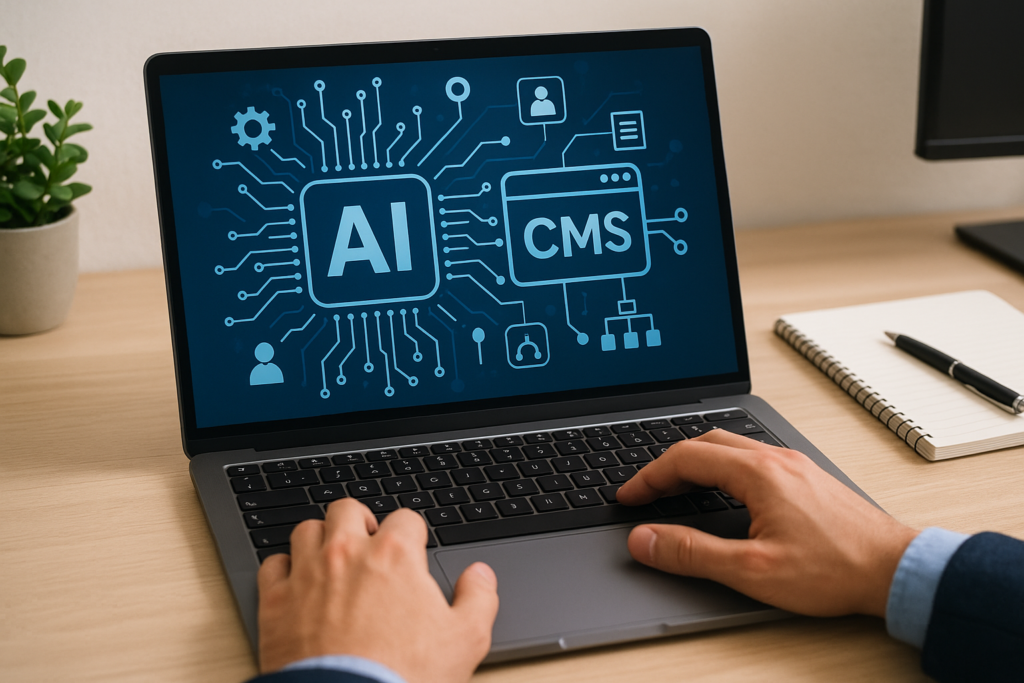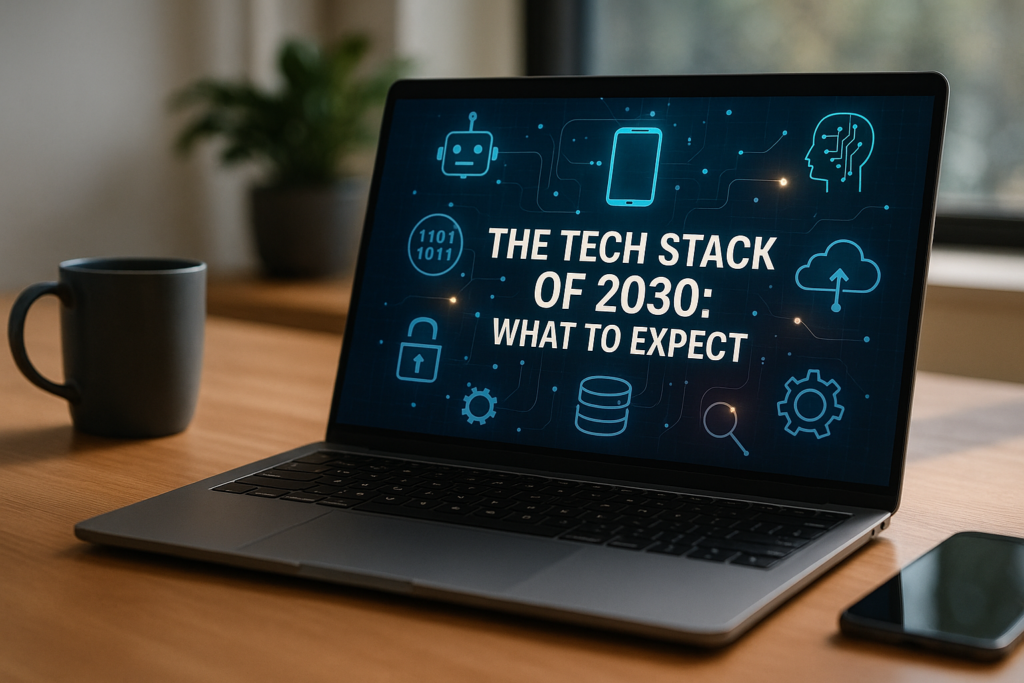Physical Address
304 North Cardinal St.
Dorchester Center, MA 02124
Physical Address
304 North Cardinal St.
Dorchester Center, MA 02124

Integrating AI into your CMS might sound like a big leap—but it’s quickly becoming the secret weapon for smart digital marketing. Imagine a small online store struggling with low engagement. They updated their site regularly, but every visitor saw the same thing. Then they made one change: they added AI to their content management system.
Suddenly, the website could show personalized content—new arrivals for returning shoppers, trending items based on user location, and custom messages. This shift to dynamic content made all the difference.
So, what is dynamic content? It’s content that changes in real time, tailored to the individual user. With modern AI integration services, businesses of all sizes can now deliver highly targeted experiences without extra effort.
As AI continues to evolve, integrating AI into your CMS will no longer be optional—it will be essential for creating engaging, scalable, and successful digital content.

What is dynamic content? It is content that changes based on who is visiting your website. This means each visitor can see something different depending on their location, device, or past actions.
In simple terms, dynamic content is flexible. It responds to users in real time. For example, if someone visits your online store twice, they might see different product recommendations on their second visit. A first-time visitor might see a welcome message or a special offer.
This is different from static content. Static content stays the same for everyone. It does not change based on who is visiting or what they do. A dynamic content website creates a more personal experience, while a static website shows the same message to all users.
Dynamic content is now a major trend in digital marketing. It helps websites feel smarter and more helpful. Content management systems make it easier to add dynamic content with less manual work.
Many businesses already use dynamic content. Ecommerce stores like Amazon show product suggestions. Media websites like Netflix recommend shows based on what you watch. SaaS platforms show different messages depending on whether you’re a new user or a returning customer.
A dynamic content website improves engagement and keeps users coming back. It offers a better user experience and often leads to more sales or sign-ups. That’s why more businesses are switching from static to dynamic content every day.

AI integration is already making big changes in how we use content management systems. Today, many popular platforms like WordPress, HubSpot, and Adobe have built-in AI tools. These tools help businesses save time and deliver better content.
For example, AI can now do auto-tagging of blog posts and images. Instead of adding tags by hand, the system can scan the content and add the right keywords. This makes content easier to find and organize.
Another useful feature is smart recommendations. AI looks at what users read or buy and then suggests more content or products. This helps keep people on your website longer. It also improves the chances they’ll take action—like signing up or making a purchase.
Content suggestions are also becoming more common. Many CMS platforms now offer topic ideas, headline tips, or even write short sections of content. This helps teams work faster without losing quality.
AI integration services make all of this even easier. These services connect your CMS with tools that do more than just basic AI tasks. They allow you to track user behavior, adjust content in real time, and test different versions to see what works best.
Still, there are some challenges. Not all content management systems offer deep AI features yet. And in some cases, AI needs better data to give strong results. This can slow down progress with dynamic content optimization.
Even with these gaps, the future looks promising. With the right tools and support, AI can turn any CMS into a smart content engine that learns and improves over time.
Dynamic content marketing will soon offer personalized content to every user, no matter where they are or what device they use. This means websites, emails, and apps will all show different content depending on the person viewing it.
Using predictive analytics, a content management system can track what users do—such as what pages they visit or what they buy. Then, it can show content based on those actions. For example, if someone always clicks on shoes, they will see more shoe ads or blog posts. This is called dynamic content optimization, and it helps keep users interested.
An AI-powered online store might show different homepages to different people. One visitor might see women’s clothing, while another sees tech gadgets. This level of personalization is already in use, and it’s getting better with new tools.
Emails and mobile apps also use dynamic content. A shopping app might show local deals, while an email might include product tips based on past purchases. All of this creates a better user experience.
When users see content that matches their needs, they are more likely to buy, click, or sign up. That’s why dynamic content marketing works so well. As more platforms adopt AI, dynamic content optimization will be a key part of every smart content management system.
AI integration is changing how we create and manage digital content. In the near future, AI will handle every part of the content lifecycle—from writing to publishing to archiving.
Generative AI tools are already helping businesses write blog posts, product descriptions, and content in multiple languages. This means brands can produce more content, faster. It also makes it easier to reach global audiences without hiring large writing teams.
Inside content management systems, AI will manage tasks like scheduling posts, updating outdated pages, and removing old content. This will save time and keep websites current. For example, a company can use AI to automatically update seasonal promotions or rewrite older blog posts to match new trends.
Editorial workflows will also improve. AI will help suggest topics and edit drafts, while human editors review and approve the final version. This creates a smooth partnership between people and AI. For dynamic content marketing, this is a big advantage. AI can track what users are interested in and adjust content accordingly. This keeps websites fresh and engaging.
With strong AI integration, businesses can manage more content without more effort. It turns your content management system into a powerful, automated publishing tool.
The future of content management systems will include support for new and exciting formats like voice commands, augmented reality (AR), and advanced visual content. These immersive experiences will change how people interact with websites and apps.
A dynamic content website won’t just show text and images. It will offer content users can hear, see in 3D, or even interact with through AR. For example, shoppers might use smart speakers to hear product details or see 3D previews of items on their phones before buying.
Thanks to AI integration, visual content will be created and customized in real time. This means images, videos, and AR experiences will change depending on the user’s preferences or location. Imagine a furniture store showing a virtual couch in your living room using AR, all managed smoothly through the CMS.
This ability to publish across many platforms is called omnichannel publishing. It lets businesses reach customers on smart speakers, mobile devices, websites, and AR apps—all from one system.
As content management systems grow more advanced, they will help businesses build the next wave of dynamic content websites. These sites will be more interactive, personalized, and engaging than ever before. This will open up new possibilities for marketers and creators alike.
In the future, the content management system will do more than just store and publish content. It will act as a smart content strategist. Using AI, the CMS will predict what users want even before they ask.
This means the system will automatically change headlines, images, formats, and calls to action (CTAs) to fit each visitor’s interests. This process is called dynamic content optimization. It helps businesses create more engaging and effective content without extra work.
The CMS will test different versions of content and learn which ones work best. It will then adjust automatically to improve user experience and increase conversions. This makes marketing faster and more accurate.
Choosing the best content management system will become easier too. Businesses will look for platforms that offer strong AI tools for strategy and optimization. The right CMS will align with specific business goals, whether that’s increasing sales, boosting engagement, or growing brand awareness.
With these smart systems, companies will spend less time guessing what works and more time delivering exactly what their customers want. This is the future of content marketing and website management.
The next generation of content management systems will act like intelligent content architects. They won’t just store content—they will help decide everything from website themes to campaign ideas and even full site layout changes. These decisions will be based on user behavior patterns and business goals.
With strong AI integration, the CMS will use A/B testing at a large scale to find out what works best. It will make real-time adjustments to the user experience (UX) to keep visitors engaged and happy. This means websites can change dynamically without manual updates.
As a result, marketers will spend less time creating content and more time managing and guiding how content is delivered. They will become content orchestrators, focusing on strategy rather than daily tasks.
However, there are some risks. Relying too much on AI could reduce creative control. Without human oversight, important nuances and brand personality might be lost. So, the best systems will balance AI power with human creativity.
Choosing the right content management system means finding one that supports this balance while enabling smarter, faster content decisions. This is how future dynamic content websites will thrive.

By 2030, content management systems will include many powerful AI technologies. Generative AI will help create content quickly and easily. Semantic search will make it simple for users to find exactly what they need.
Reinforcement learning will improve the user experience (UX) by learning from visitor behavior and adjusting in real time. Deep learning will enable instant, personalized content delivery based on each user’s preferences.
These CMS platforms will also connect smoothly with other important business systems like CRMs, ERPs, and Digital Experience Platforms (DXPs). This integration means content, customer data, and business processes will work together seamlessly.
Thanks to interoperability and API-first designs, businesses can publish content quickly across many channels and devices. This flexible approach supports modern, dynamic content websites that adapt to user needs.
With this tech stack, the best content management system will be one that offers smart AI tools and easy connections with other software, helping businesses stay ahead in content marketing.
For successful AI integration, businesses need to prepare their teams and systems carefully. First, upskilling marketing teams is essential. Employees should learn how to work with AI tools to support dynamic content marketing effectively.
Strong IT governance is also important. It ensures AI is used ethically and safely while delivering real value. This helps build trust with customers and avoids common pitfalls.
Choosing the right content management system is key for long-term growth. Businesses should look for a platform that can scale with their needs and support advanced AI features.
Partnering with expert AI integration services can make the process smoother. These services offer guidance and technical support, helping businesses stay competitive.
To learn more about selecting the best CMS for your needs, check out this helpful guide from CMS Critic.
Following these steps will give businesses a strong foundation for the future of content marketing.
To get ready for the future, start by auditing your current content management system. Look at how well it supports your needs and whether it can handle dynamic content optimization. Understanding your starting point helps plan the next steps.
Next, begin using AI-powered content personalization. This means delivering the right content to the right user at the right time. Personalization improves engagement and builds stronger connections with your audience.
It’s also important to run experiments with dynamic content marketing campaigns. Test different messages, formats, and delivery methods to see what works best. Use data from these tests to improve your strategy over time.
When you choose a new or upgraded CMS, pick one that supports AI integration today. This will prepare your business to handle smarter content creation, real-time adjustments, and better customer experiences.
By following this plan, your business can stay ahead in the evolving world of content marketing and deliver engaging, personalized experiences across all channels.
AI isn’t just a passing trend. It is becoming a core part of the best content management system options available today. Integrating AI into your CMS will help you create smarter, more personalized, and engaging content that stands out.
Businesses that start embracing AI integration early will lead the way in digital experience innovation. They will be better prepared to meet changing customer expectations and stay competitive.
Now is the time to explore how AI can transform your content marketing strategy. By choosing the right content management system and integrating AI tools, you can unlock your content’s full potential and set your business up for success by 2030.
For more insights and support on AI integration, visit icebergaicontent.com. Embrace the future today and watch your content thrive.
Q1: What is a content management system (CMS)?
A content management system is software that helps you create, manage, and publish digital content on websites. It makes managing your content easier without needing deep technical skills.
Q2: What is dynamic content?
Dynamic content changes based on who is viewing it. Unlike static content, it adapts to the user’s preferences, behavior, or location to create a more personalized experience.
Q3: How does AI integration improve a CMS?
AI integration adds smart features like content personalization, auto-tagging, and real-time content optimization. This makes your content management system more efficient and your marketing more effective.
Q4: What are AI integration services?
These services help businesses connect AI tools with their CMS to automate tasks, analyze data, and deliver better content experiences.
Q5: How can dynamic content marketing benefit my business?
It boosts engagement by showing personalized content to your audience. This increases conversions and improves customer satisfaction.
Q6: How do I choose the best content management system for AI integration?
Look for platforms that support AI-powered tools, easy integration, scalability, and strong support for dynamic content optimization.